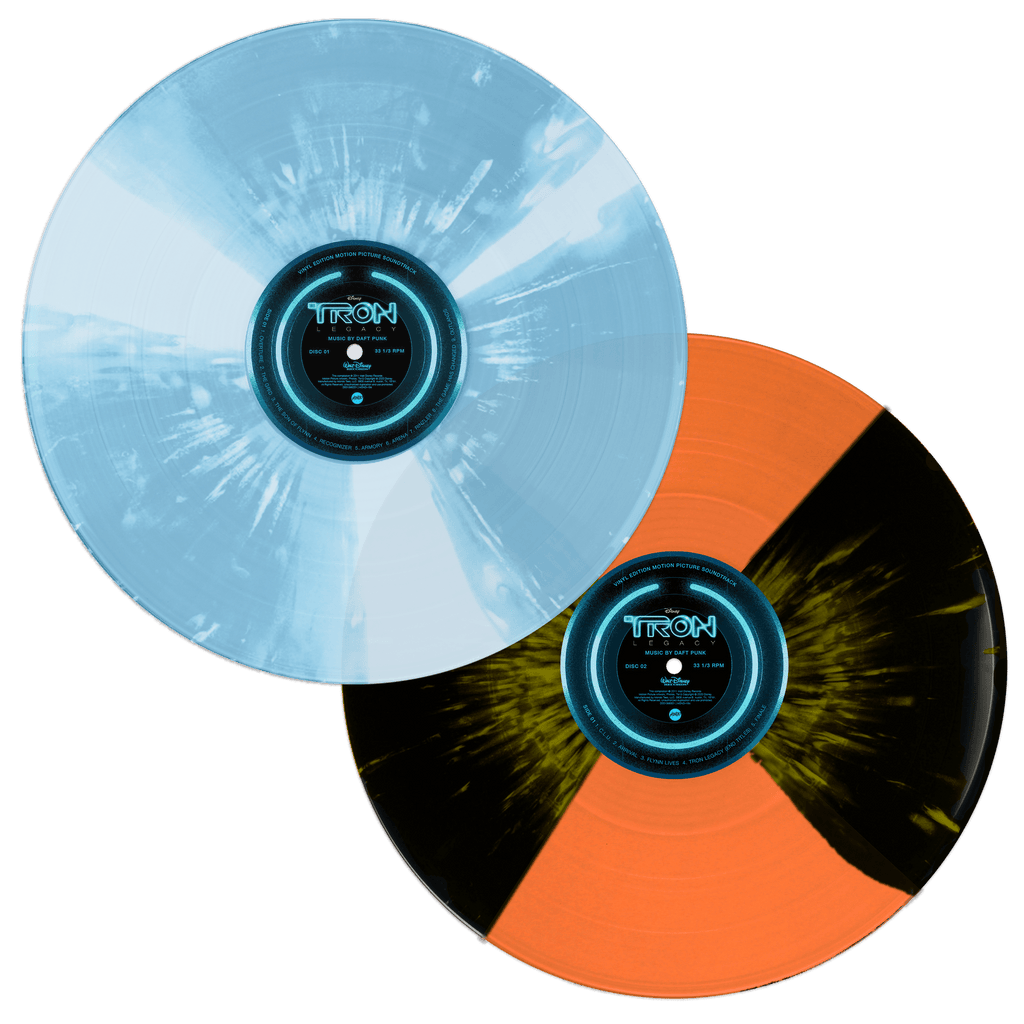
It's not until the score's second half that the duo's more typical sound emerges on "Derezzed"'s filter-disco and on "End of the Line," where witty 8-bit sounds evoke '80s video games.

However, for most of Tron: Legacy, they're concerned with pushing boundaries. Daft Punk get in a few clever nods to Wendy Carlos' Tron score, from "The Grid"'s blobby analog synth tones to "Adagio for Tron"'s mournful sense of lost wonder. Elsewhere, "Recognizer"'s pulsing horns and synths and "The Son of Flynn"'s arpeggios and strings are so tightly knit that they finish each others' phrases. "The Game Has Changed" may be the most dramatic example: It starts with a wistful wisp of melody that sounds like a ghost in the machine, then swells of strings and brass and buzzsaw electronics submerge but never quite overtake it. Working with the London Orchestra, Bangalter and de Homem-Christo fuse electronic and orchestral motifs seamlessly and strikingly. Tron: Legacy's legitimacy as a score may surprise listeners unaware of Bangalter's fine work on 2003's Irreversible while that score actually hews closer to Daft Punk's sound, it showed his potential for crafting music beyond the duo's usual scope. However, Tron: Legacy takes a much darker, more serious approach than the original film and Daft Punk follows suit, delivering soaring and ominous pieces that sound more like modern classical music than any laser tag-meets-roller disco fantasies fans may have had.

When it was announced that the duo would score the sequel to one of sci-fi's most visionary movies, it seemed like the perfect fit: Their sleek, neon-tipped, playful aesthetic springs from their love of late-'70s and early-'80s pop culture artifacts like Tron. "The Game Has Changed" is the name of one of the tracks on Daft Punk's score to Tron: Legacy, and it also fits Thomas Bangalter and Guy-Manuel de Homem-Christo's music for the film.


 0 kommentar(er)
0 kommentar(er)
